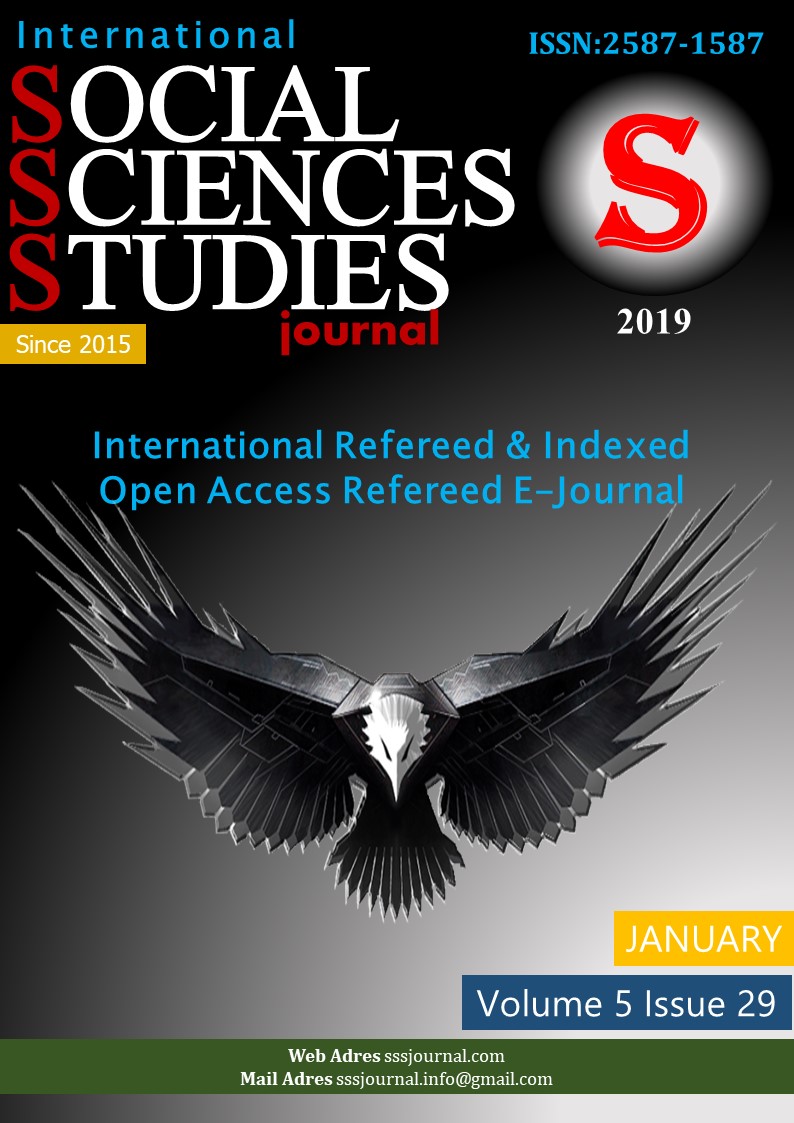Teaching Diversity: Elementary School Teachers' Opinions And Experiences On The Use Of Multicultural Children’s Books
Author :
Abstract
ABD’de çeşitlilik hızla artmakta ve bu nedenle öğretmenler giderek öğrenci çeşitliliğinin daha fazla olduğu sınıflarla karşı karşıya kalmaktadır. Kültürel değerlere duyarlı öğretim, farklı kültürlerin okullarda temsil edilmesine odaklanır ve kültürler hakkında bilgi sağlamaktadır(Jeffy ve Cooper, 2011). Bu çerçevede, çokkültürlü edebiyatın ve farklılıklarla ilgili konularla yazılmış kitapların sınıflarda kullanılması her zamankinden daha önemli hale geliyor. Bu çalışmanın amacı, öğretmenlerin çokkültürlülüğü desteklemek için çokkültürlü çocuk edebiyatını kullanma fikirlerini ve deneyimlerini belirlemektir. Bu çalışma için şu anda ABD'deki devlet okullarında ilköğretim sınıflarında çalışan dört ilkokul öğretmeni ile görüşme yapılmıştır. Bu çalışma için veriler, yarı yapılandırılmış ve açık uçlu sorularla yapılan görüşmelerden toplanmıştır. Bulgulara göre, dini, dilsel ve kültürel farklılıkları öğretmek öğretmenlerin çokkültürlülükle alakalı kavramları öğretirken üzerinde durdukları ana konular olduğu ortaya çıkmıştır. Diğer bir bulguda ise farklılıklara ait kültürlerin olumlu resmedilmesi, çeşitliliğin çok olduğu sınıfların bir parçası olduğunu söylemektedir.
Keywords
Abstract
Diversity in the US is rapidly growing and as such, teachers are being faced with increasingly diverse classrooms. Culturally relevant teaching focuses on the representation of different cultures in schools and provides information about the cultures (Jeffy&, Cooper, 2011). Within this framework, using multicultural literature and the books related to diverse issues become more important than ever. The purpose of the study was to determine teachers’ opinions and experiences on the use of multicultural children’s literature for supporting multiculturalism. For this study, I interviewed four elementary teachers, referred to by the pseudonym within the study, who are currently working in elementary classrooms in public schools in the United States. For this study, the data were collected from the interviews with semi-structured and open-ended questions. According to the findings, teaching religious, linguistic and cultural differences are the main objects that the teachers plan on teaching multiculturalism. Another finding says that positive representation of others’ cultures is a necessary part of their diverse classrooms.
Keywords
- Alseth, K. (2010). Teachers' multicultural literature choices: Are they authentic mirrors of intermediate students?. (Doctoral dissertation, University of Nebraska at Omaha).
- Banks, J. A. (1993). Multicultural education: Historical development, dimensions, and practice. Review of research in education, 3-49
- Barta, J., & Grindler, M. C. (1996). Exploring bias using multicultural literature for children. Reading Teacher, 50(3), 269-270.
- Bieger, E. M. (1995). Promoting multicultural education through a literature-based approach. The Reading Teacher, 49(4), 308-312.
- Ching, S. H. (2005). Multicultural children's literature as an instrument of power. Language Arts, 83(2), 128.
- Garcia, D. L. D. A. (2001). Teachers using multicultural literature and reader response to teach children multiculturally (Doctoral dissertation, University of New Mexico).
- Hinton, K., & Berry, T. (2004). Literacy, literature, and diversity. Journal of Adolescent & Adult Literacy, 48(4), 284-288.
- Irvine, J. J. (2010). Culturally relevant pedagogy. Education Digest, 75(8), 57-61.
- Levin, F. (2007). Encouraging ethical respect through multicultural literature. The Reading Teacher, 61(1), 101-104.
- Lopez, A. E. (2011). Culturally relevant pedagogy and critical literacy in diverse English classrooms: A case study of a secondary English teacher's activism and agency. English Teaching: Practice & Critique, 10(4).
- Martell, C. C. (2013). Race and histories: Examining culturally relevant teaching in the US history classroom. Theory & Research in Social Education, 41(1), 65-88.
- Mathis, J. B. (2001). Respond to stories with stories: Teachers discuss multicultural children's literature. The Social Studies, 92(4), 155-160.
- Paris, D. (2012). Culturally Sustaining Pedagogy A Needed Change in Stance, Terminology, and Practice. Educational Researcher, 41(3), 93-97.
